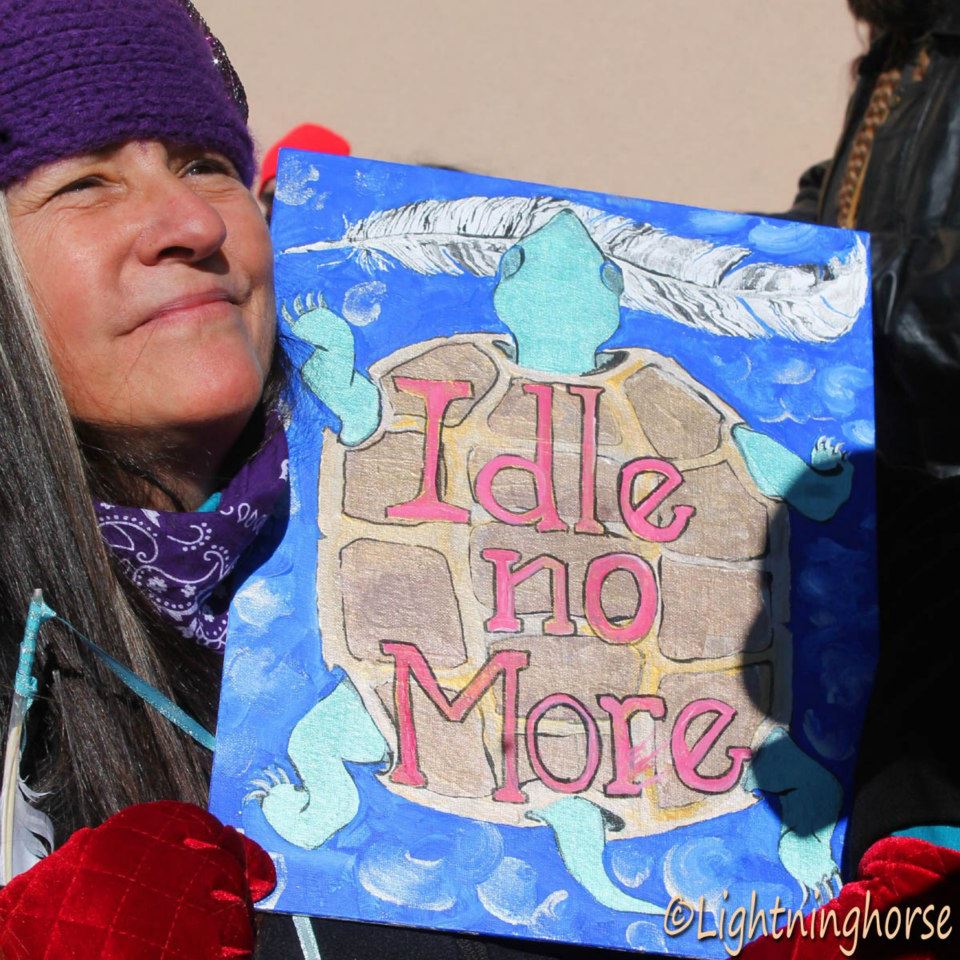Bill C-45 ignited Idle No More, both the moment in time and movement afterward. The moment that Idle No More signifies, though, represents a point or blip in a very long history of Indigenous people struggling to get Canada to respect Indigenous people’s rights to land and water, live up to their treaty responsibilities and find their true humanity. Think about it, Pontiac’s rebellion took place in the 1700s. My ancestors have been doing their work for a long long time. Enough said on this.
Since Bill C-45 also concerns people who are not Indigenous to Canada, or rather settlers or descendants of settler Canadians, it comes as little surprize to me that political organizations such as Common Causes seek to align themselves with Indigenous people and our cause. For me, this desire and reach from outsiders for Indigenous alliance building is puzzling.
In my work I have found attempts at alliance building disappointing, and thus I am skeptical of Common Causes’ desire. I ask myself, and I know other Indigenous women have also asked themselves, “Are they being real and genuine to the needs of Indigenous women, and by extension their needs?”
As an Indigenous human rights advocate for well over 25 years, I have had a lot of time to think about the need for alliances. Of course they are needed. I have also had the time to think critically about how it is that as an Indigenous woman I do not trust alliances lead by white people and for that matter men — Indigenous men included. This statement does not make me a racist or, for that matter, sexist. Further, keep in mind please that my preference here is to say “white people” because after all we are all Indigenous to the earth and we all have ancestral Indigenous knowledge that we need to go back to. I certainly don’t say white people as an insult.
That said, when I reflect on my experiences as an Indigenous woman, and when I dig deep in my heart and thoughts, I realize more fully — in a conscious sense — why I view potential alliances with white people and men as suspect.
Don’t get me wrong, it is great to know that other people and political organizations understand that solidarity is key. But I also know full well that unless “we” stand behind the people most oppressed “we” will not gain the solidarity needed. This is because the people most oppressed need to know that when the people who are less oppressed get what they need and want — whatever that is, like getting rid of Harper in the next election — that they will continue to stand behind their needs rather than drop their needs.
In all genuine solidarity efforts, to use a metaphor, the turtle who is the slowest must lead the way forward. To take a different approach is nothing less than false solidarity in that it will not serve the needs of the people most oppressed.
Let’s face it, if settlers or descendants of settler Canadians do gain freedom, yet others do not, their freedom will be off the backs of those most oppressed. Alternatively stated, no one will gain freedom until the most oppressed gains emancipation. As harsh as this may seem, the bottom line for me is: if alliance seekers cannot stand behind “my” needs as an Indigenous woman, I want nothing to do with “your” need for an alliance.
Be sure, settler and descendants of settler Canadians, that Indigenous people have a long history of being denied our land and our water: the unilateral altering of treaties, terrible legislation, passing of bills without consultation and collaboration, failed remedial legislation, unilaterally constructed policy, fork tongue discourse, rape, murder, genocide, and broken promises….
Go ahead, be selfish and stand behind me, my sisters, and their babies. I don’t mind. By standing behind the turtle you assure your emancipation.
Dr. Lynn Gehl is an Algonquin Anishinaabe-kwe from the Ottawa River Valley. She has a section 15 Charter challenge regarding the continued sex discrimination in The Indian Act, she is an outspoken critic of the Ontario Algonquin land claims and self-government process, and she recently published a book titled Anishinaabeg Stories: Featuring Petroglyphs, Petrographs, and Wampum Belts. You can reach her at [email protected] and see more of her work at www.lynngehl.com.
Photo by Nancy Smith-Blackwell / http://www.occupynewmexico.org/




